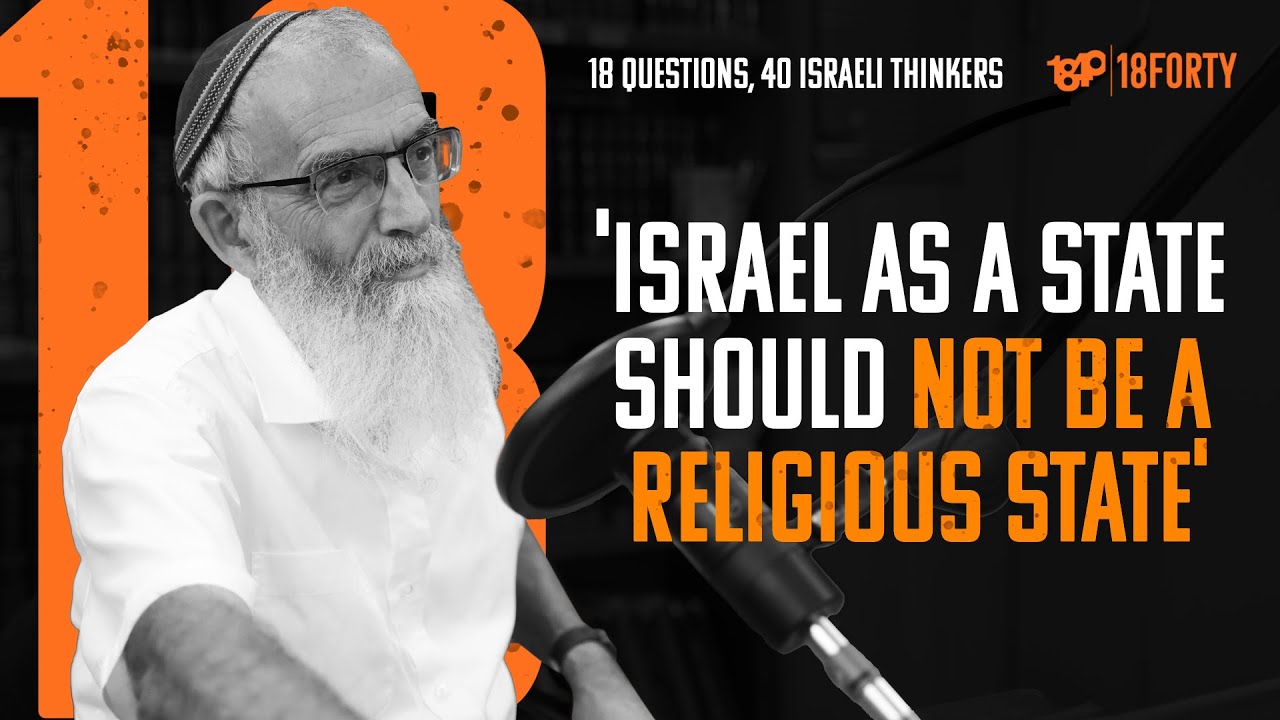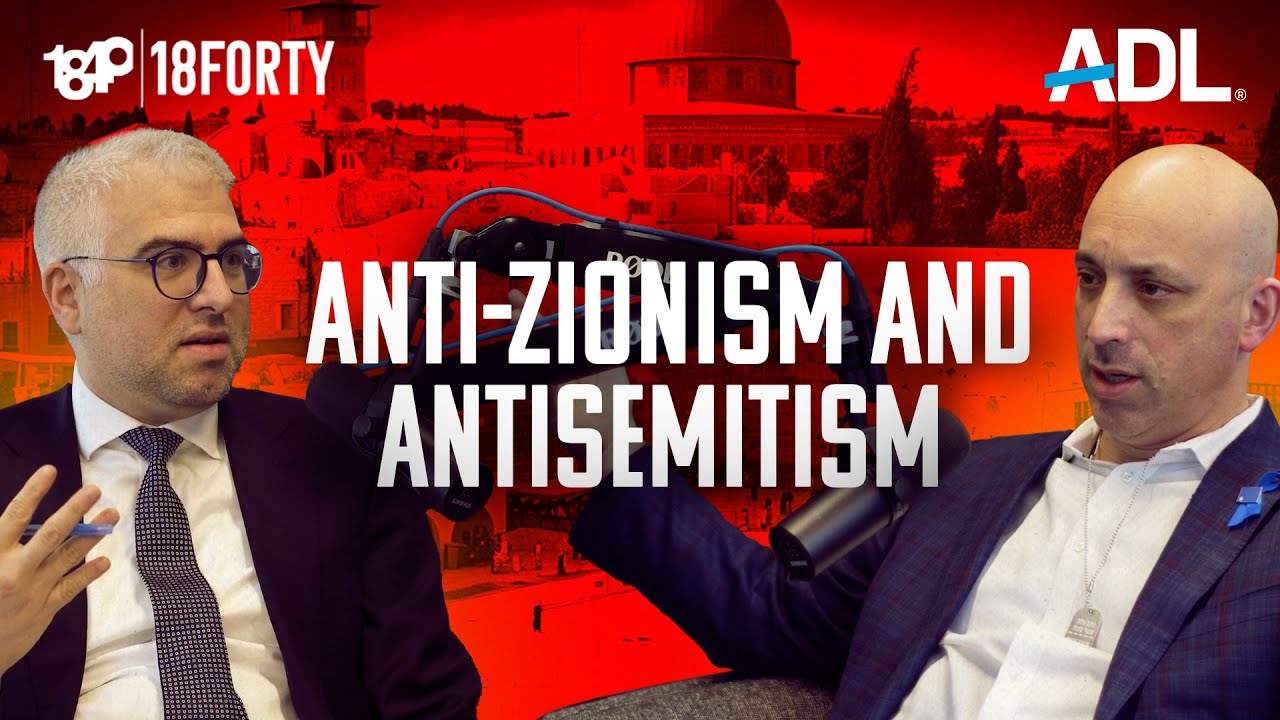Despite the presence of Thor and other gods in the Marvel Cinematic Universe (MCU), Chloé Zhao’s Eternals is the most mythological MCU film to date.
In the 2021 film, Zhao presents the Eternals—alien beings of immense power sent by the Celestial Arishem the Judge to protect humanity from the evil Deviants—as gods and other famous folk heroes. Protagonists Thena (Angelina Jolie) and Phastos (Brian Tyree Henry) are stand-ins for the Greek gods Athena and Hephaestus, while Gilgamesh (Don Lee) is the namesake of the story’s Sumerian demi-god. And while spelled a bit differently, Ikaris (Richard Madden) shares much with Icarus, the boy who flew too close to the sun. (Non-movie watchers need not fear if this is a bit overwhelming! You don’t need to remember these names to understand what comes next.)
And yet despite their individual connections to Greek and Mesopotamian mythological characters, as a whole, the Eternals can teach us much about our God—specifically how the philosopher and rabbi Eliezer Berkovits sees Him in his seminal work, God, Man and History.
Published in 1959, the philosophical work explores the relationship between God and humanity. In Berkovits’ understanding, Maimonides argues that “the metaphysical apprehension of God generates love for God.” That is, the relationship between God and humanity is an impersonal one based on intellect. Berkovits, on the other hand, argues that the “foundation of religion is … that God is concerned with man and the world; that, having created the world, [H]e has not abandoned it.” Just by looking at the Bible, Berkovits writes, it is clear that “everything is relationship.” The Five Books of Moshe are full of God speaking, commanding, calling and appearing before humanity, all culminating in the “encounter” between Man and God at Sinai.
It would be crushing, for someone to wholly stand before God, revealing their inherent nothingness and robbing them of their spiritual freedom.
As godlike beings, this is the type of relationship the Eternals create with humanity. In their efforts to defeat the Deviants, the Eternals live among the humans, speaking and appearing before them, while guiding and helping them along in subtle yet important ways. Some Eternals even fall in love and start families with those they are sworn to protect, representing a more personalized metaphor for the relationship between man and God.
Still, despite their love for the people of Earth, the Eternals maintain a distance from humanity as a whole. By order of Arishem, the Eternals are forbidden to involve themselves in any human conflicts, as doing so would endanger the natural development of their species. So they remove themselves, hiding in plain sight, watching over them to make sure they don’t destroy themselves completely. This limitation is hardest on Druig, an Eternal with the power to control minds. He watches war after war, genocide after genocide, wrestling with his love for humanity. Does he stop all conflict now, taking away free will but saving countless lives, or does he let history play out, allowing humanity to grow and learn from their mistakes with the hope of building a better world?
This paradox of absence and presence is also exemplified by the God of God, Man and History. As Berkovits writes, God is “concerned with man and the world.” But God must also maintain a distance from humanity, for His presence endangers all. After the initial encounter, when God delivered the Ten Commandments directly, the people begged Moshe to serve as their interloper and “let not God speak with us lest we die.” Even Moshe himself, upon first encountering God at the burning bush, turns his face away, “for he was afraid to look upon God.” And yet, as Berkovits describes:
The peril resulting from “contact” with the divine Presence has nothing to do either with the sinfulness of man or with the judgment of the Almighty. It is something quite natural … The Presence imperils men, not on account of God’s will directed against man, but because divine nature is so charged with the vitality of being that its nearness naturally overwhelms all individual existence.
In other words, the people of Israel are not endangered by their encounter with God on account of their wrongdoing. Rather, they are naturally endangered by God’s overwhelming presence. It would be crushing, for someone to wholly stand before God, revealing their inherent nothingness and robbing them of their spiritual freedom. So, God hides Himself, and in that hiding, he allows humanity to find themselves.
This gives man the opportunity to act wickedly—but this is necessary for goodness to prosper. While God’s active presence would “render the doing of evil impossible,” it would also “eliminate the foundations of all ethical action” in general. God cannot frighten people into goodness. Goodness must be chosen over wickedness freely, for otherwise, it is not true goodness. In order to be good, man must be given the opportunity to be wicked, which means God cannot be present.
Druig eventually comes to understand that, to express his true love of humanity, he must let them suffer the consequences of their actions—the good and the wicked. As he explains to his fellow Eternal Sersi:
Druig: I thought about taking over the minds of every human on this planet. Violence, fear, greed, all gone.
Sersi: Why didn’t you?
Druig: Because without their flaws, they wouldn’t be human.
However, as Berkovits writes, God is still “responsible to the extent to which [H]e has made man free and sustains man in freedom” and argues that “a situation may arise in which divine intervention may have to to be direct and manifest to all.” God does not abandon humanity to its self-destructive whims and will act in “divine responsibility” when necessary. This is not an ideal method of influencing history but a “stopgap” in history itself, for divine intervention represents a “serious breakdown in history.” God will only go so far. At the end of the day, “man’s destiny on [E]arth can be fulfilled only by man himself. The task and responsibility are his.”
The Eternals also feel a responsibility toward the humans, eventually breaking Arishem’s code to save the planet from an impending disaster. However, they face repercussions for their rebellion: Arishem removes the Eternals from the planet to scour their millions of years of memories to decide if the people of Earth truly deserved such a miracle. Should Arishem be impressed by humanity’s past actions, Earth will prevail. But if the corruption, wars, and genocides prove too overwhelming, judgment will be rendered. The Eternals, with their great power and even greater miracles, have done all they can. Humanity’s destiny has always been and continues to be in their hands. Let’s hope we are up to the task.
Sam Gelman is a freelance writer and editor who writes about the intersection of Judaism and pop culture. He has published in Moment Magazine, TVLine, Shelfdust and CBR, and can be found on Twitter at @SamMgelman. When he is not writing, he serves as a Senior Program Manager at the Yeshiva University Office of Student Life.





































